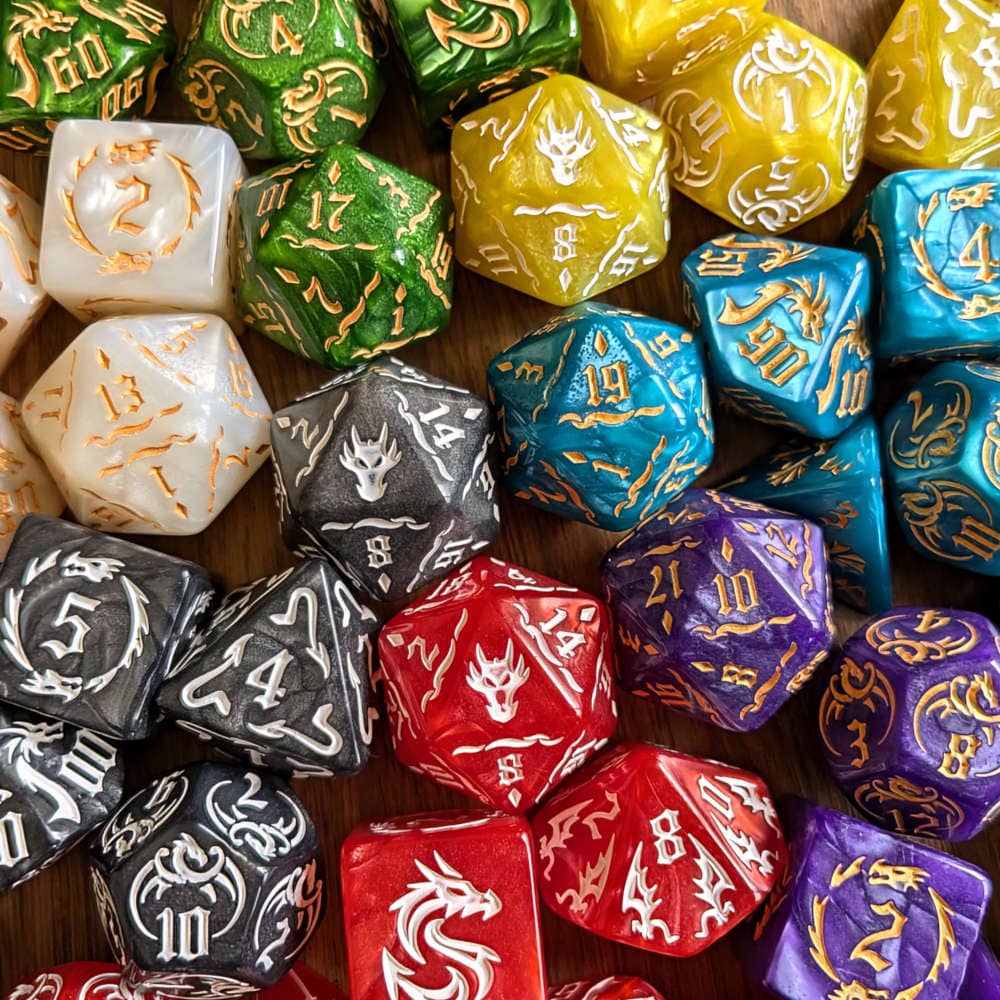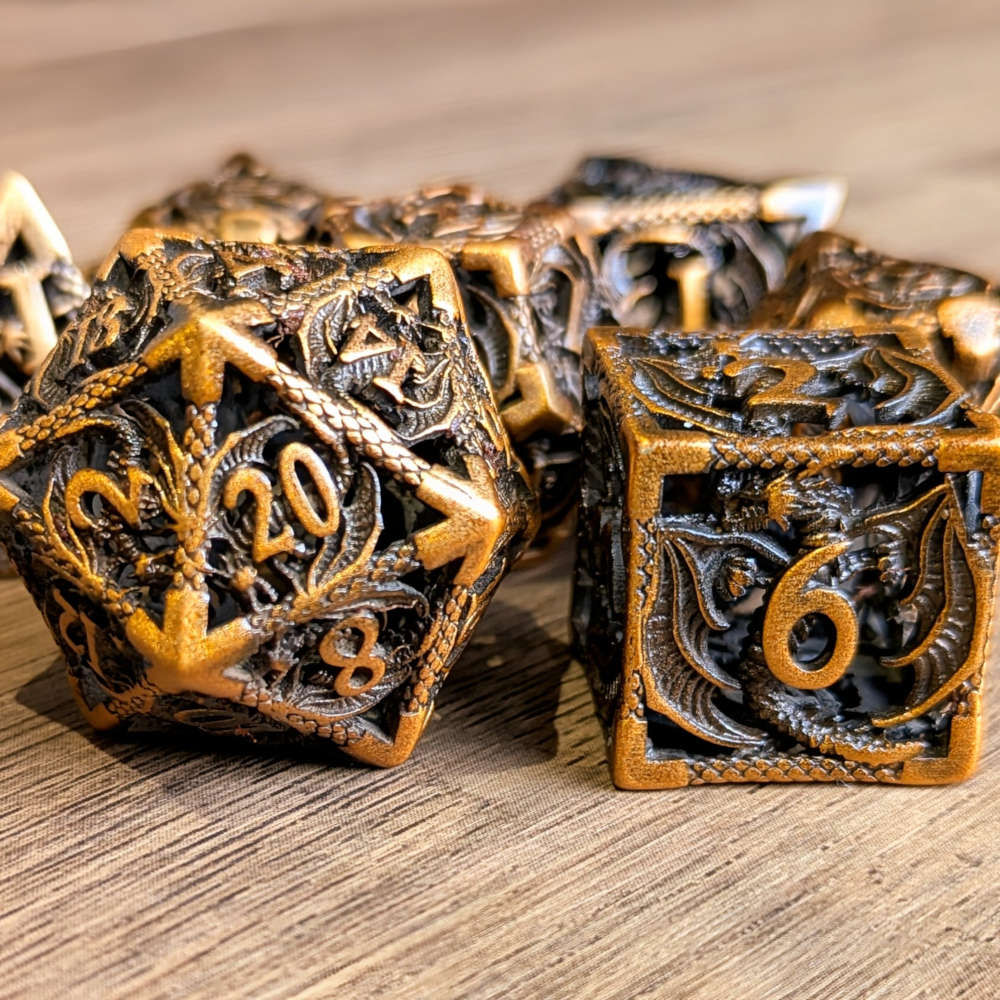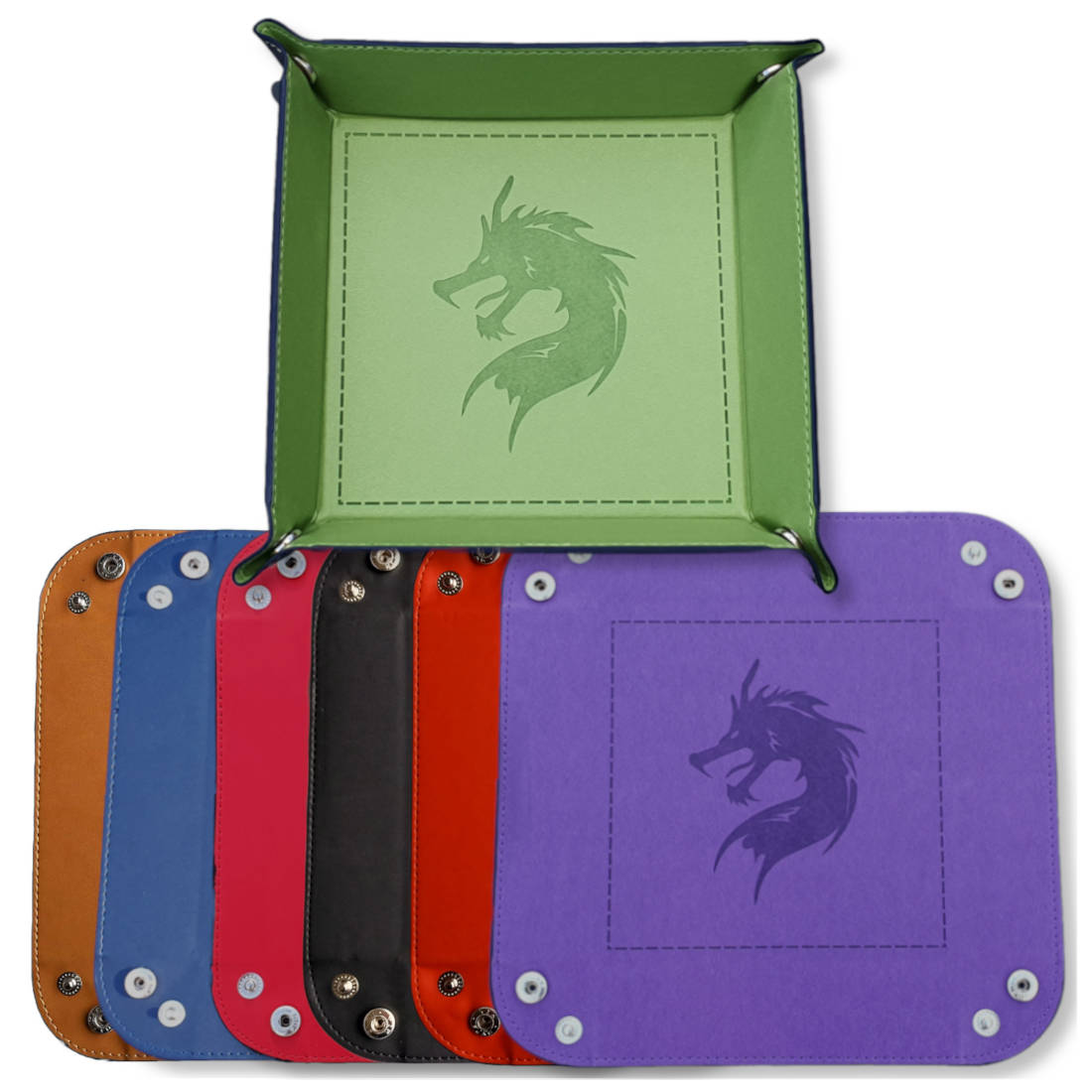What is a Virtual Tabletop?

The rise of online play has brought about the need for virtual tabletops (VTTs). These platforms serve as digital environments where players and Dungeon Masters can gather to embark on adventures much like they would in real life, but from their own homes.
Our guide dives into the world of VTTs, shedding light on the two most prominent platforms: Roll20 and Foundry VTT. Whether you're a seasoned adventurer or a newcomer to online tabletop gaming, this guide will equip you with the knowledge to choose the VTT that best fits your needs.
Can you play D&D virtually?
Yes, you can play D&D virtually using a virtual tabletop (VTT). These platforms replicate the physical tabletop experience in a digital space, allowing you to interact with maps, control your tokens, and roll dice alongside your fellow adventurers, all from the comfort of your own screen.
There are lots of differences between playing D&D in-person and online, so make sure you’re aware of those before deciding to play online.
What is a VTT?
A VTT, or virtual tabletop, replicates the physical tabletop experience in a digital environment. It's where players gather online to interact with maps, tokens, and dice rolls. The two main VTTs are Roll20 and Foundry VTT, each offering unique features for enjoying tabletop roleplaying games online.
What is Roll20?
Roll20 is a popular virtual tabletop platform designed to facilitate online tabletop roleplaying games like Dungeons & Dragons. It provides a comprehensive suite of tools and features to streamline gameplay, including virtual dice rolling, character sheets, interactive maps, and dynamic lighting. With a user-friendly interface, Roll20 makes it easy for both players and Dungeon Masters to immerse themselves in their virtual adventures.

Above: our Dragonlance D&D campaign on Roll20.
One of the key features of Roll20 is its accessibility, as it operates entirely within a web browser, eliminating the need for players to download software. This makes it convenient for players to join sessions from various devices, including computers, tablets, and smartphones. Overall, Roll20 provides a versatile and user-friendly platform for playing tabletop RPGs online, making it a popular choice among both newcomers and experienced players alike.
Why use Roll20?
- Quick and easy to get a game setup and running
- Free to use, with over 8 million players on the platform
- Simple and straightforward user interface makes Roll20 perfect for beginners
- Roll20 is a lot less demanding on your device and internet than Foundry VTT
What are the drawbacks of Roll20?
- There is a distinct lack of customisation and advanced features compared to Foundry VTT
- A free account only has 100MB of space for maps and assets, which runs out very quickly
- Roll20 lighting and token vision features are rudimentary and may not suit your needs
- Less automation than Foundry VTT
What is Foundry VTT?
Foundry Virtual Tabletop is a powerful virtual tabletop platform designed for roleplaying games like D&D. It offers robust features, including dynamic lighting, character sheets, and extensive customisation options. Foundry VTT stands out for its flexibility and community-driven development, allowing users to create immersive gaming experiences tailored to their preferences.

Above: our Pokemon D&D campaign on Foundry VTT.
Foundry VTT is a self-hosted platform, offering users the flexibility to host it according to their preferences. Whether you choose to host it on your own computer or opt for a dedicated server, Foundry VTT empowers you to customise your hosting setup.
With a vibrant community of developers, Foundry VTT supports various systems, including D&D, and boasts numerous add-on modules for additional functionality like animations, sounds, and more.
Why use Foundry VTT?
- It is self-hosted meaning users have full control over the gaming experience
- There is a thriving community that creates lots of systems and add-on modules
- You can achieve much more immersive effects than with Roll20
- Foundry VTT has some systems not available on Roll20, such as Pokemon Tabletop Reunited
What are the drawbacks of Foundry VTT?
- The Dungeon Master will have to purchase a software licence
- It has a steep learning curve, especially compared to Roll20
- Foundry VTT may struggle with low-end computers or slow internet
- You might need to install lots of add-ons to get the desired experience
What other virtual tabletops can I use for D&D?
Other VTTs for D&D include Tabletop Simulator, Owlbear Rodeo, Fantasy Grounds, and D&D Beyond. However, Roll20 and Foundry VTT are the most popular, due to their extensive features and user-friendly interfaces.
Remember, you’ll also need a way to communicate with your fellow adventurers. Make sure to check out our guide on playing D&D over Discord for more information.
What is the best VTT for new players?
For new players, we recommend Roll20. It's free, relatively user-friendly, and widely adopted, making it easy to jump into D&D and other TTRPGs. With plenty of resources and a supportive community, Roll20 offers a smooth entry into virtual tabletop gaming.
What is the best virtual tabletop for D&D?
The best VTT for D&D depends on your needs. We recommend Foundry VTT as it offers extensive customisation, ideal for Dungeon Masters willing to pay the initial cost and tackle a learning curve. With advanced features and community support, it surpasses Roll20 in many ways.
Dice to power your online games
Now that you're familiar with the best VTTs for D&D, why not delve deeper? Explore our guide for finding a D&D group and learn how to run a session zero to align everyone for your upcoming adventures.
Even in online play, dice are essential. Browse our range of DND dice sets, including our eye-rolling dice with liquid cores containing floating eyeballs that wiggle and squirm with each roll!





